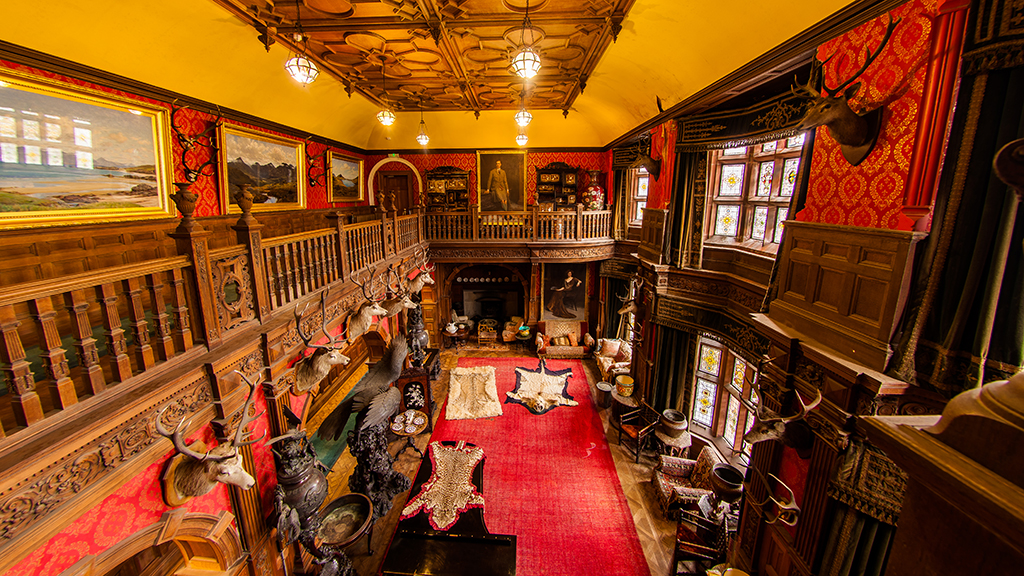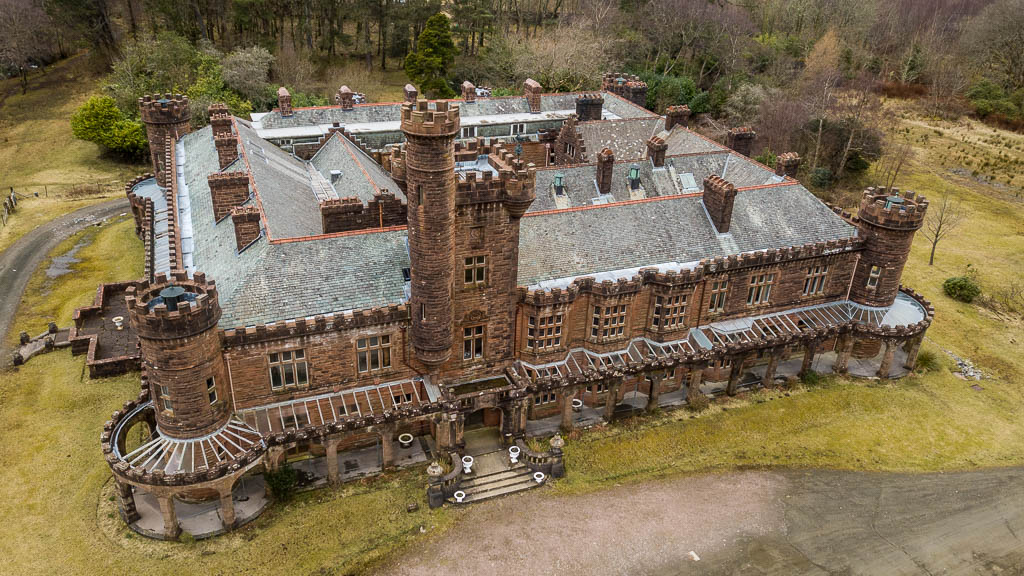An application for asset transfer of A listed Kinloch Castle from the current owner, Scottish Natural Heritage, has been rejected.
The Kinloch Castle Friends Association has expressed extreme disappointment at the decision to reject its bid for asset transfer, of the castle on the Isle of Rum.
The impressive A listed building had been occupied since built in 1900 until the closure by SNH in 2013 of hostel facilities, and since then it has deteriorated substantially with repeated outbreaks of wet and dry rot, and water ingress.
The original population also fell from 42 to a low of around 20 people. It is estimated that restoration of the castle with increase in visitor numbers would create employment opportunities for up to 50 people, not
only in the castle, but also for subsidiary businesses, such as the provision of outdoor experience activities. This would contribute to the economic regeneration of the island and wider communities.
The asset transfer set out KCFA’s proposals to use the building, following restoration, as a bed and breakfast facility to provide additional much-needed indoor overnight accommodation for visitors to the island, together with bistro and bar facilities which would ensure it was self-sustainable.

Inside Kinloch Castle
A spokesperson for the organisation said: ‘If this castle was on the mainland there would no question about its continuing survival. We are determined to continue to fight for the castle and the opportunities which our business plan provides to contribute to the economic regeneration of the island and the wider community.
‘We have identified potential alternative sources of funding, and we will be pursuing further discussions with SNH and the Scottish Government.
‘Our exploration of other funding mechanisms within the financial community has provided independent corroboration that our business plan is robust.’
Nick Halfhide, SNH’s director of Sustainable Growth, said: ‘Scottish Natural Heritage has reached a decision to refuse the asset transfer request from Kinloch Castle Friends Association (KCFA) for ownership of Kinloch Castle. Having carefully considered all the evidence presented, we concluded that the merits of the request fell short of the necessary requirements for a successful asset transfer application.
‘We ensured that the assessment process was not only thorough and fair, but also transparent and the full decision and papers will be made available on our website.
‘The benefits of any asset transfer application are considered against the criteria set out in the National Outcomes, Best Value themes and guidance. Consideration is given to a range of outcomes, including tackling inequalities, supporting strong and resilient communities, and demonstrating value to the relevant authority in existing use, and also the value for proposed and other community purposes.
‘KCFA carries out a range of important work and we fully understand that they will be disappointed by this decision. We hope that it does not discourage them from engaging with SNH and partner organisations which are looking to secure the best interests for the castle.’
KCFA submitted the bid for asset transfer after SNH declared that that the organisation had no further need for the castle, which had at one time been run as an upmarket hotel with hostel facilities, providing accommodation for up to 56 people.

Since then visitor numbers to the nature reserve have halved because of a lack of accommodation while doubling in neighbouring Eigg and in the West Highlands generally. Rum has recently lost the services of a Ranger as reduced visitor numbers led to a reduction in hours which made the post nonviable.
KCFA say the Ranger did a sterling job organising a wide variety of walks, talks and other events highlighting and interpreting the natural attractions for visitors.
They say Rum is now experiencing inward investment and regeneration, with the establishment of a fish farm off the island by MOWI, and the construction of new housing stock, both for the largely transient fish farm workers, and also for local residents. However additional employment opportunities are required to encourage more people to settle on the island, reversing the decline in the resident population, and ensure the viability of the island’s primary school.
Rum is mostly owned by SNH, although the houses in Kinloch village transferred to the local community. The asset transfer of the castle is
regarded as the next phase in the return of the island’s assets to a community which was dispossessed in 1828, at the time of the forcible clearance of over 400 people to create a sheep farm.
The provision of additional indoor accommodation in the castle building would enable larger educational study and outdoor leisure groups, currently deterred by the limitations of available accommodation, to spend time on Rum, studying and enjoying the island, a National Nature Reserve.
Meanwhile the future of the castle remains uncertain. SNH commissioned a feasibility report on the future of Kinloch Castle in 2016, and the conclusion was that a sustainable solution for the castle must be achieved.
TAGS

